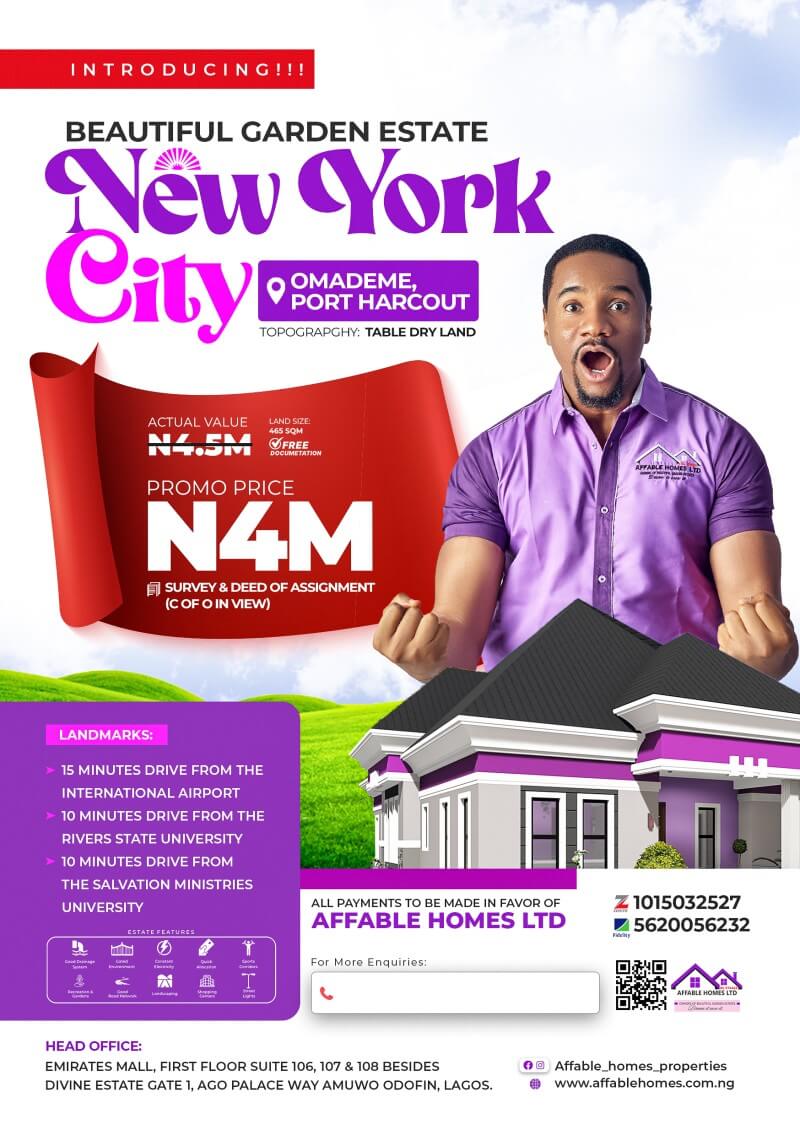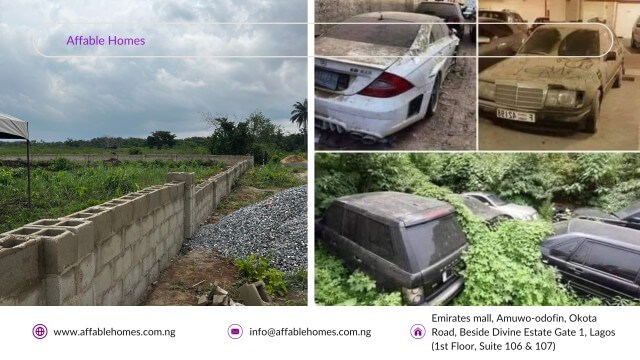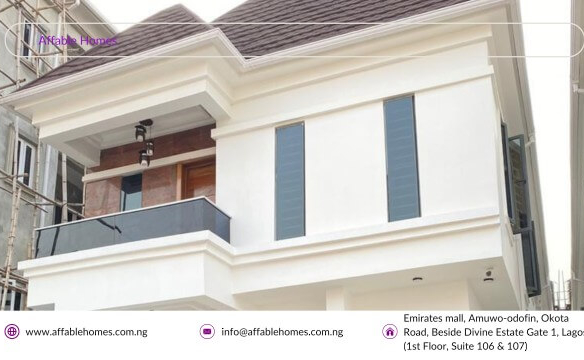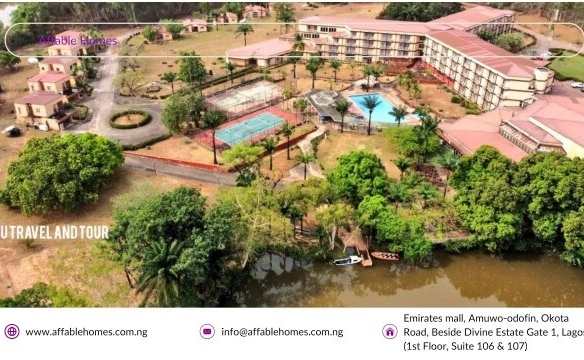You’ve finally done it. All those sleepless nights, early mornings, tight budgets, and disciplined saving have paid off. Maybe it came through a big business deal, your first major salary increase, a side hustle that finally took off, or a wise investment; however you earned it, you’re now sitting on ₦10 million. You are asking whether you should buy land or a car.
That’s no small feat. In a country where many struggle to get by, reaching this financial milestone is a moment of pride. It feels good, empowering, validating, even surreal. You finally have the power to make a significant purchase that could change your life.
But now comes the big question, one that many Nigerians, especially young professionals and first-time earners, wrestle with: Should you buy a car or invest in land?
On one side of the argument is the immediate comfort and status a car provides. There’s something undeniably satisfying about cruising through traffic in your own vehicle, no longer at the mercy of keke, buses, or Bolt drivers. It’s convenient, stylish, and can even feel like a reward for your hard work.
But on the other hand lies something less flashy but potentially far more rewarding: land. Land doesn’t give you instant thrills, but it holds the promise of long-term wealth. It’s one of the oldest and most reliable ways to build generational assets. Unlike a car, land doesn’t lose value when you buy it; in fact, it usually appreciates over time.
This article dives deep into both options, breaking down the pros and cons, financial implications, real-life scenarios, and smart alternatives. Whether you’re leaning toward comfort or long-term security, the goal is to help you make a clear, informed, and financially intelligent decision.
What 10 Million Can Get You in Nigeria Today
Let’s be honest, 10 million naira used to go a lot further. But even today, it’s still a significant amount that can either multiply or disappear depending on how you use it.
- A 10 million naira budget can get you a neat used Toyota Camry, Corolla, or a new entry-level vehicle.
- You can also purchase a full plot of land in fast-developing areas
1. Buying a Car: Weighing the Emotional Appeal Against Practical Realities
Purchasing a car is often seen as a symbol of success, a tangible reward for one’s hard work and financial progress. For many first-time earners, owning a car delivers a sense of pride, independence, and elevated social status. Beyond the emotional satisfaction, cars also provide practical day-to-day benefits that can improve quality of life.
Advantages of Buying a Car:
- Convenience and Comfort: A personal vehicle eliminates the stress and unpredictability of public transportation, offering comfort and privacy, especially for daily commutes or family responsibilities.
- Increased Mobility for Work and Business: In urban centers with inadequate transportation infrastructure, a car can be essential for professionals who need to move quickly between locations. It also facilitates time management and productivity.
- Income-Generating Potential: When used strategically, a car can serve as a business tool. Ride-hailing platforms, delivery services, and logistics operations present opportunities to turn a car into a revenue stream.
However, while a car offers short-term utility and prestige, it is important to evaluate its long-term financial implications.
Also Read:
- Different Land Use Plans Available in Lagos: A Complete Guide
- 5 Businesses You Can Start on Commercial Land in Lagos State
- Where to Buy Land Near Lagos at Affordable Prices
Drawbacks of Buying a Car:
- Depreciating Value: Unlike land or property, cars are depreciating assets. A brand-new vehicle can lose up to 20–30% of its value within the first year, with continued decline annually.
- Ongoing Costs: Ownership comes with recurring expenses such as maintenance, fuel, insurance, licensing, and potential repairs, all of which can significantly impact your finances over time.
- Liability Rather Than Asset: From a financial standpoint, a car typically does not generate income unless used for business purposes. It consumes rather than contributes to your wealth, making it a liability in most personal finance frameworks.
2. Buying Land: A Strategic Path to Long-Term Wealth
In Nigeria, land ownership has long symbolized stability, success, and upward mobility. It is often considered the cornerstone of generational wealth and a key indicator of financial maturity. Unlike most consumer purchases, land is not just a possession; it’s a strategic investment that tends to appreciate in value over time with minimal intervention.
Advantages of Buying Land:
- Consistent Value Appreciation: Land is one of the few assets that naturally increases in value due to factors such as population growth, urban expansion, and infrastructural development, especially in emerging areas like Epe, Ibeju-Lekki, and parts of Port Harcourt or Abuja.
- Development Opportunities: Land offers a versatile foundation for wealth creation. It can be developed into residential or commercial property, rented out, or held for capital gains in the future.
- Future Financial Security: Even when left undeveloped, land can serve as a financial safety net. It provides long-term security, and its value can be leveraged through resale or collateral for loans.
However, while land holds significant long-term promise, it comes with its own set of practical and legal considerations.

Drawbacks of Buying Land:
- Lack of Liquidity: Land is not a liquid asset. Converting it to cash can take time, especially if located in less-developed or low-demand areas. This makes it less suitable for urgent financial needs.
- Legal and Documentation Risks: The Nigerian real estate market requires careful due diligence. Without proper documentation, such as a Certificate of Occupancy (C of O), Deed of Assignment, or government-approved survey, buyers risk litigation, double allocation, or total loss of ownership.
- Delayed Gratification: Land is a passive asset in the short term. It does not offer the immediate functional or lifestyle benefits that a car might provide, which may be a psychological hurdle for some first-time buyers.
What You Should Do
Ask yourself:
- Do I really need a car right now or do I just want one?
- What are my short-term vs long-term financial goals?
- Do I have a steady income to maintain a car?
- Can I wait 2-5 years for land to increase in value?
Also Read:
- Different Land Sizes Available in Most Estate Properties in Lagos
- Different Types of Due Diligence You Must Do Before Buying a Property in Lagos
- What is the Difference Between Excision and Governor’s Consent in Lagos?
If you’re thinking about short-term comfort, a car might seem tempting, but if you’re thinking about long-term wealth, buy land. You can rent a car, use Uber, or find alternatives until you’re in a stronger financial position. Land won’t call you at midnight for repairs or lose 30% of its value in a year. Money doesn’t stay valuable forever. Inflation, bad decisions, or lifestyle creep can erode it quickly. But if you invest smartly, your first 10 million can be the beginning of financial freedom.
So what’ll it be? A car that fades or a land that appreciates? The choice is yours, but choose like a future millionaire.
To explore any of our real estate investment packages like land banking, retirement plan, kids education investment plan, trade apprenticeship plan or if you want to purchase some plots where you will have residential or commercial buildings, send an email to us at info@affablehomes.com.ng or call +2349134056630.
Click here to fill the form and we will reach out to you immediately.




